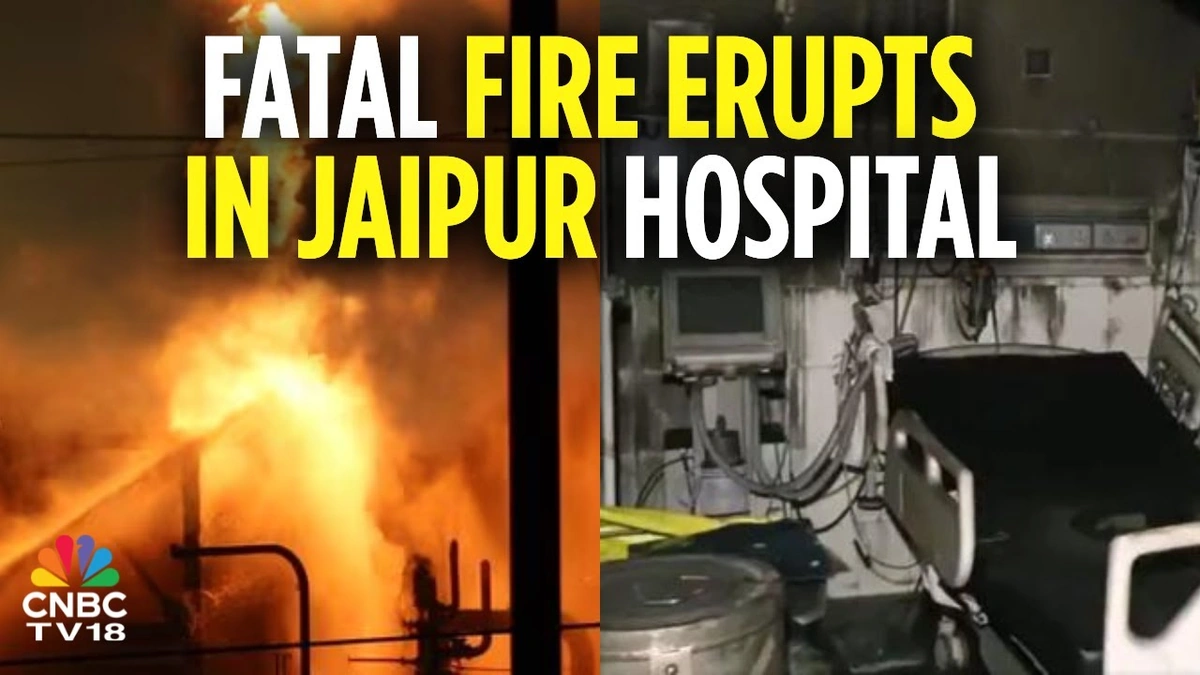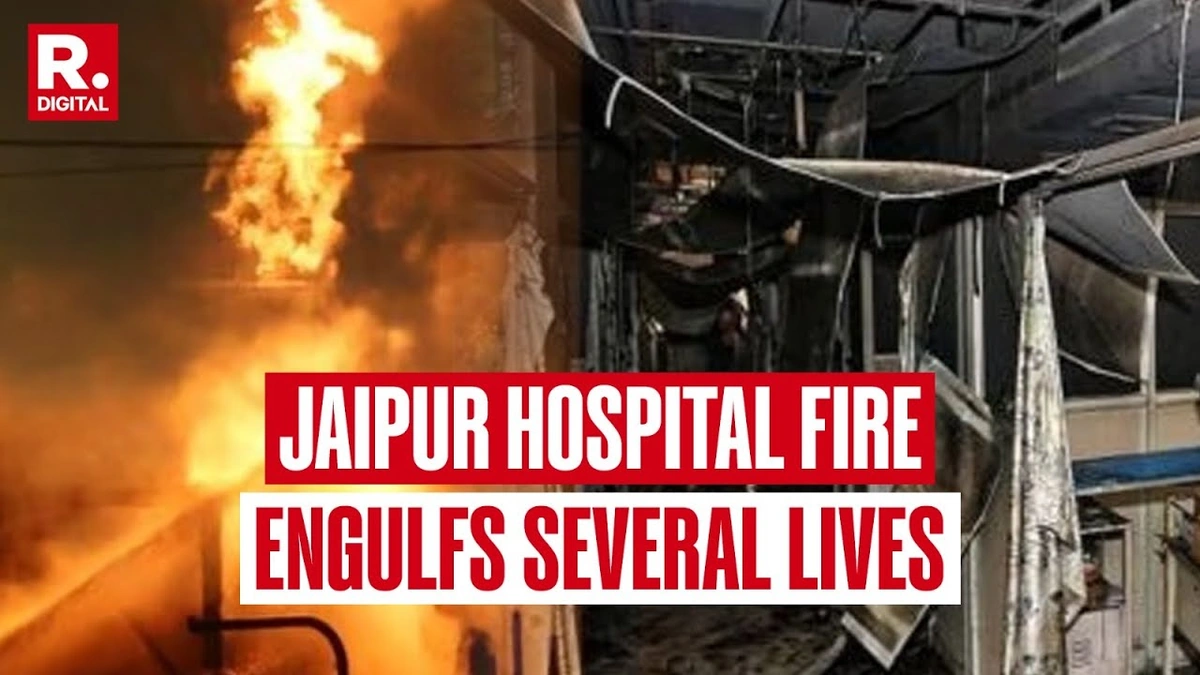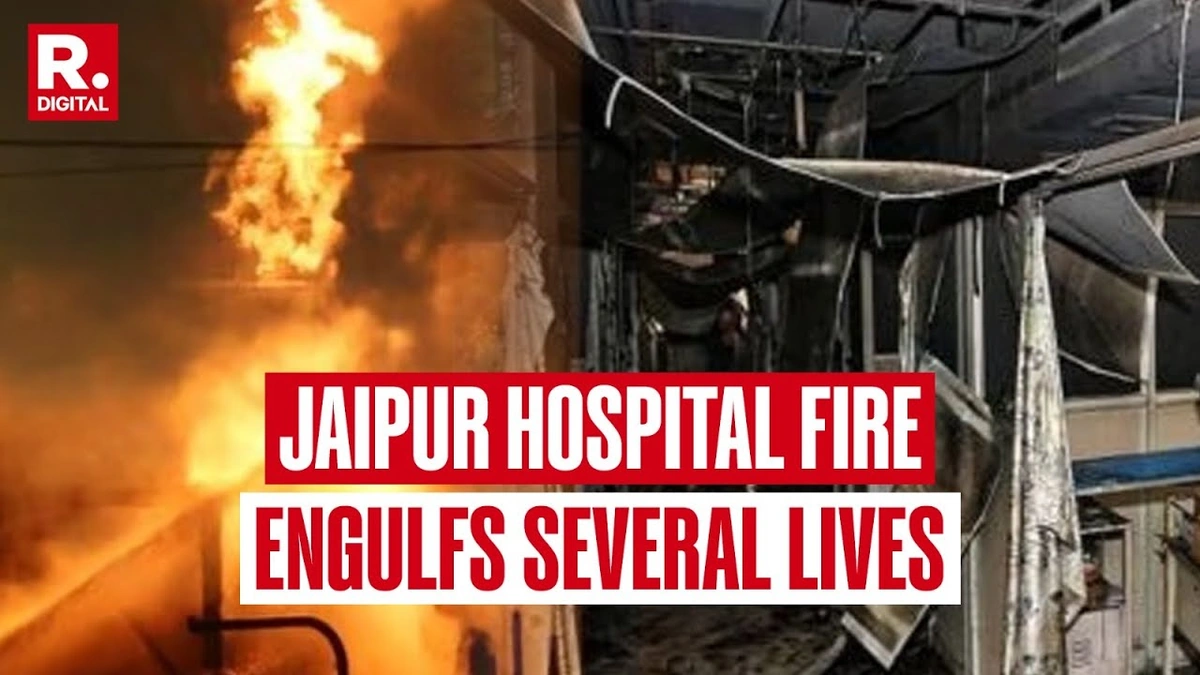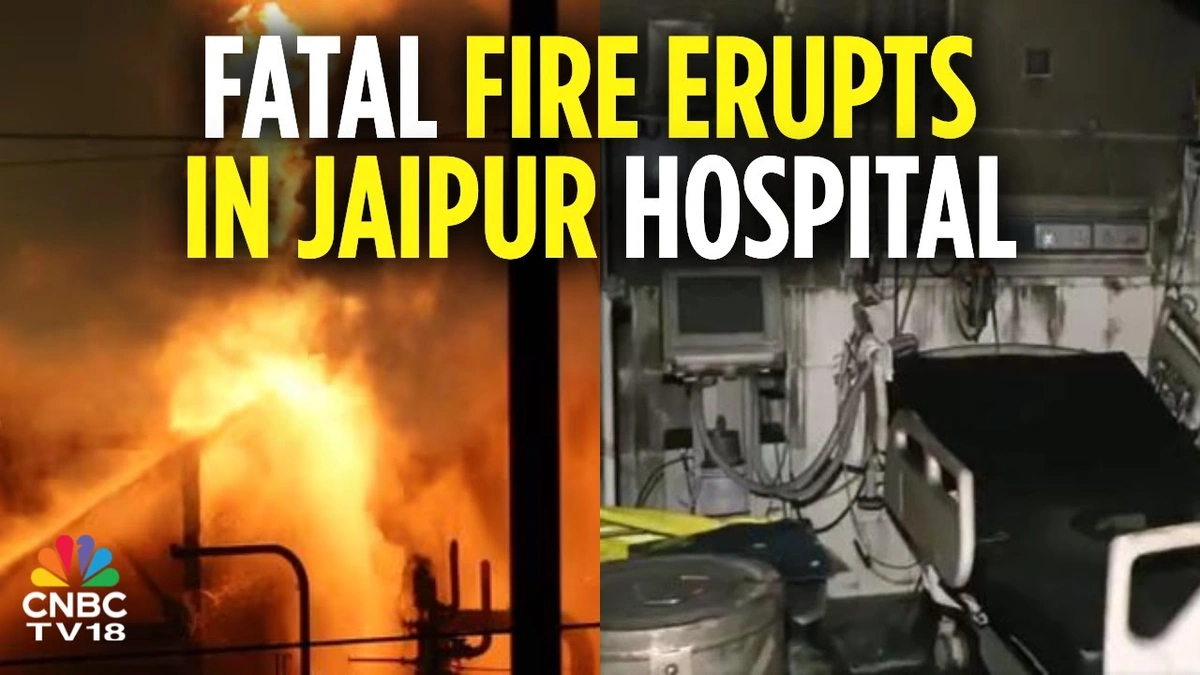8 Dead in ICU Fire at Jaipur’s SMS Hospital; Inquiry Ordered
The news hit like a punch to the gut: a fire in the ICU of Jaipur’s SMS Hospital. Eight lives lost. An inquiry ordered. But beyond the headlines, beyond the immediate tragedy, lies a deeper, unsettling question: why did this happen? What systemic failures allowed a fire to erupt and claim so many lives in a place dedicated to healing?
Let’s be honest, hospital fires aren’t exactly common, or at least, they shouldn’t be. So, the question isn’t just about what happened, but about the systemic risks within our healthcare infrastructure.
The Chain of Failures | More Than Just Bad Luck
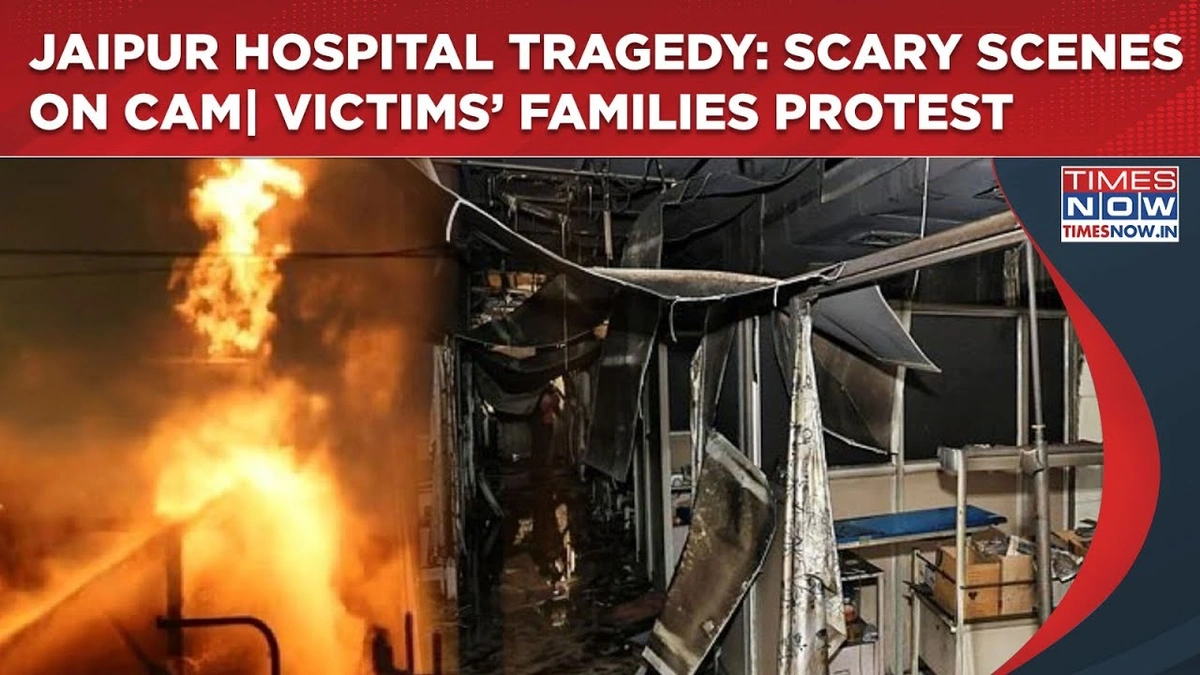
Initial reports point to a short circuit as the cause of the blaze. Okay, short circuits happen. But here’s the thing: hospitals are supposed to have robust fire safety measures in place. Multiple layers of protection. Redundancies. So, a single short circuit shouldn’t become a deadly inferno. What fascinates me is this; was it sheer misfortune, or a cascading series of failures that led to this tragedy? The investigation must go far deeper than the surface explanation. It is important to identify potential negligence.
Think about it. Fire alarms that malfunction. Sprinkler systems that don’t activate. Emergency exits that are blocked or poorly marked. Understaffed and undertrained personnel. These are all potential contributing factors, and each one represents a breakdown in protocol, a chink in the armor of safety that’s supposed to protect vulnerable patients. There is a lot of investigation to be done, as the facts and figuresshow a great disparity.
And it’s not just about the immediate aftermath of the fire. What about the building’s infrastructure? Was it up to code? Had it been properly inspected recently? Were there flammable materials being stored improperly? The answers to these questions will reveal the underlying systemic problems that need to be addressed.
ICU Fire Safety | What Should Be in Place
An Intensive Care Unit (ICU) is where the most vulnerable patients are treated, so the safety standards should be nothing short of exemplary. A fire in an ICU highlights potential negligence.
Here’s what should ideally be in place:
- Robust Fire Detection and Suppression Systems: Smoke detectors, heat sensors, and automatic sprinkler systems are the first line of defense. They need to be regularly tested and maintained.
- Fire-Resistant Materials: The building materials themselves should be fire-resistant, limiting the spread of flames and smoke.
- Clearly Marked and Accessible Escape Routes: Emergency exits must be clearly marked, well-lit, and free from obstructions. Regular fire drills are essential to ensure staff and patients know how to evacuate safely.
- Trained Staff: Healthcare workers need to be trained in fire safety protocols, including how to use fire extinguishers, how to evacuate patients, and how to respond to emergencies.
- Regular Inspections and Maintenance: Routine inspections by fire safety experts can identify potential hazards and ensure that all fire safety systems are in good working order. As per fire safety rules, having a trained fire safety officer is a must for hospitals.
Negligence in any of these areas can have devastating consequences, as we’ve seen in Jaipur.
The Human Cost | Beyond the Statistics
It’s easy to get lost in the technical details, the talk of short circuits and sprinkler systems. But let’s not forget the human cost of this tragedy. Eight people lost their lives. Families are grieving. And a community is left reeling in shock and sadness. Beyond the eight fatalities of the Jaipur Hospital Fire , a large number of people were directly or indirectly affected. The well-being of the families should be the government’s top priority.
These weren’t just numbers on a page. These were mothers, fathers, sisters, brothers, each with their own stories, their own dreams, their own loved ones. And their lives were cut short in a place that was supposed to be a sanctuary of healing. What fascinates me is what goes through the minds of people when a hospital catches fire and they are in a position where they are unable to move because of their medical conditions. The fireinvestigation will also try to cover this aspect of it.
Their tragedy serves as a stark reminder of the importance of fire safety and the need for accountability when things go wrong. We must learn from this tragedy to prevent similar incidents from happening in the future.
Accountability and the Path Forward
An inquiry has been ordered, and that’s a start. But inquiries alone aren’t enough. There needs to be accountability. If negligence or wrongdoing is found, those responsible must be held accountable for their actions. Only then can we begin to restore public trust and ensure that such tragedies are not repeated. The SMS Hospital fire is a clear indication of the loopholes in the system.
Furthermore, this tragedy should serve as a wake-up call for hospitals across India. It’s time to review fire safety protocols, invest in better equipment and training, and ensure that all facilities are up to code. We need a national effort to improve fire safety in hospitals, with clear guidelines, regular inspections, and strict enforcement.
It’s the bare minimum we owe to the victims and their families. The fire highlights the need for improved hospital safety standards .
FAQ | Addressing Your Concerns About Hospital Fire Safety
Frequently Asked Questions(FAQ)
What are the most common causes of hospital fires?
Often, it’s electrical malfunctions, faulty equipment, or even human error like improper disposal of smoking materials. Regular maintenance and staff training are key to prevention.
What fire safety measures should all hospitals have?
At a minimum: working smoke detectors, sprinkler systems, clearly marked exits, fire-resistant construction materials, and a well-trained staff. Regular inspections are also a must.
What should I do if I see a fire in a hospital?
Immediately alert staff, activate the nearest fire alarm, and if possible, assist in evacuating patients who need help. Follow the instructions of hospital staff.
How often should hospitals conduct fire drills?
Hospitals should conduct regular fire drills, at least twice a year, to ensure staff is familiar with evacuation procedures. Many fire safety experts suggest quarterly fire drills.
Who is responsible for ensuring fire safety in hospitals?
Hospital administrators, fire safety officers, and all staff members share the responsibility. It’s a collective effort to maintain a safe environment.
So, as the investigation unfolds, let’s remember that this isn’t just about assigning blame. It’s about learning from this tragedy, fixing the systemic problems, and ensuring that hospitals become the safe havens they’re meant to be. The Jaipur hospital authorities should be held accountable, if found guilty. It’s about honouring the memory of those who lost their lives by creating a safer, more secure healthcare system for all.
